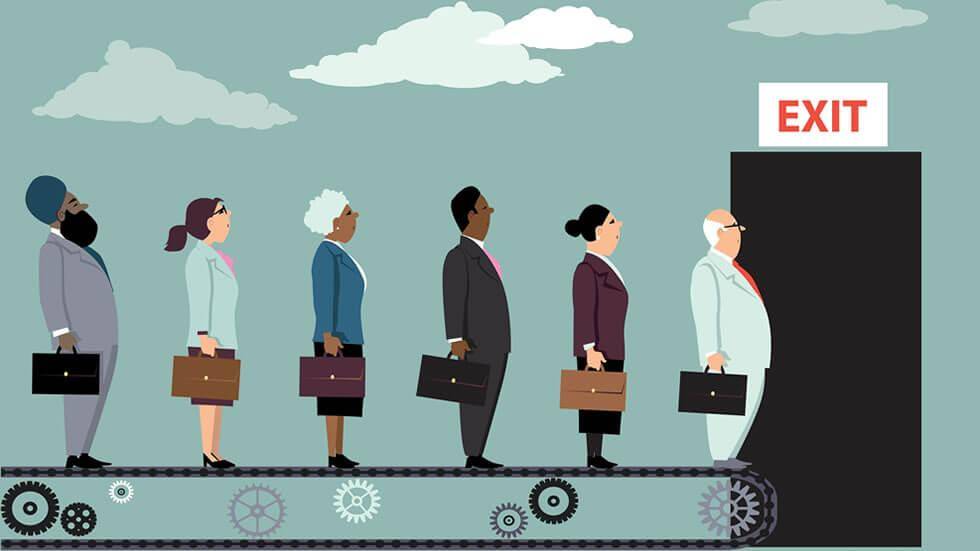At Zephyr, we spend a lot of time thinking and pontificating about the state of the American workforce – where we are, where we are going, and how we can make it better. Like, a lot of time. Maybe a borderline-obsessive level of time. But in our defense, there is no shortage of things to think and talk about these days, especially in the midst of the “Great Resignation,” a moniker given to recent labor shortages and the increasing number of people leaving their jobs in search of greater opportunities.
Lately, I have been thinking about how we got here. While I am not a history scholar, I certainly paid enough attention in school to know about the evolution of the workforce and the major shifts that occurred throughout our history. My experience has helped me develop the intuition to feel another major shift coming. And it’s a shift small businesses are poised to take advantage of.
Looking back through history, one of the first major shifts in the country’s workforce came during the Industrial Revolution in the early- to mid-1800s. Technology advancements in machinery and manufacturing techniques transformed the United States from rural agrarian communities to urban industrialized ones. Consumers who were used to home making or growing the items required to meet their basic needs left the farm life for jobs in a factory. The rich got richer, the poor got poorer, and workers became labor – nameless, faceless commodities whose main purpose was to make money for their boss. The U.S. became a world industrial superpower, but it came at the expense of its workers, who were subject to long hours and unsafe conditions. We’ll spare you the gory details but check out Upton Sinclair’s The Jungle for reference. Even as federal regulation improved the lives of workers, the cultural, economic, and societal shift was here to stay.
The next major shift occurred when women began entering the workforce in large numbers in the 1970s. Women in the U.S. had expanded opportunities for higher education and higher-paying positions as the women’s rights movement encouraged them to pursue their aspirations outside of the home. This enhanced the fiscal power of women as well as the average American family, but it also set up an economic system where families often need two incomes to make ends meet.
While each of these shifts brought a lot of economic growth and positive aspects to the American workforce, they also fundamentally changed our relationships with our work. Each shift empowered the workforce to seek new opportunities and pursue the American dream. But it also transitioned work from a means to seek fulfillment to a means to survive.
That brings me to what I see as the next big shift – the Great Resignation. Pundits, including myself in a previous blog, have analyzed why it is happening. For answers, I believe we can look to Maslow’s hierarchy of needs, a psychological theory based on the idea that once a person’s basic human needs for food, water, and safety are met, they go searching for more – a feeling of love and belonging, self-esteem, and self-actualization. In everyday American life, we have reached a point where the basic needs of much of the population are met at a base level (this is not to say that we do not have further to go to help disadvantaged populations, because we absolutely do.)
Too often, theorists argue that throwing more money at employees is going to be enough to counteract the fact that 4.3 million people, or 3% of the labor force, left their jobs in August of 2021. Good pay and benefits are wonderful, and certainly contribute to job satisfaction, but people want more. They want to love their job, work in a positive environment that fosters growth, and feel like their work has greater meaning. And they will not settle for less. They are longing for a fundamental shift in culture and mindset, one that allows them to feel supported, acknowledged, and valued.
Therein lies the good news. Small businesses are the perfect place to create that opportunity, environment, and culture! Small businesses offer an alternative to the cold corporate culture where employees feel like they don’t matter to their employer. They may not be able to throw a pile of money at their employees, but they can give them everything else that contributes to the secret sauce of employee retention – support, respect, belonging, and the feeling that they are contributing to a greater purpose, even if only in their small corner of the world.
Small businesses are uniquely positioned to come out on top of this workforce evolution. Zephyr Connects® is honored to help great small businesses build and retain great teams. We know they are integral to this next big shift and helping them is our passion. To learn how you can improve employee culture and engagement at your business, feel free to reach out here.

